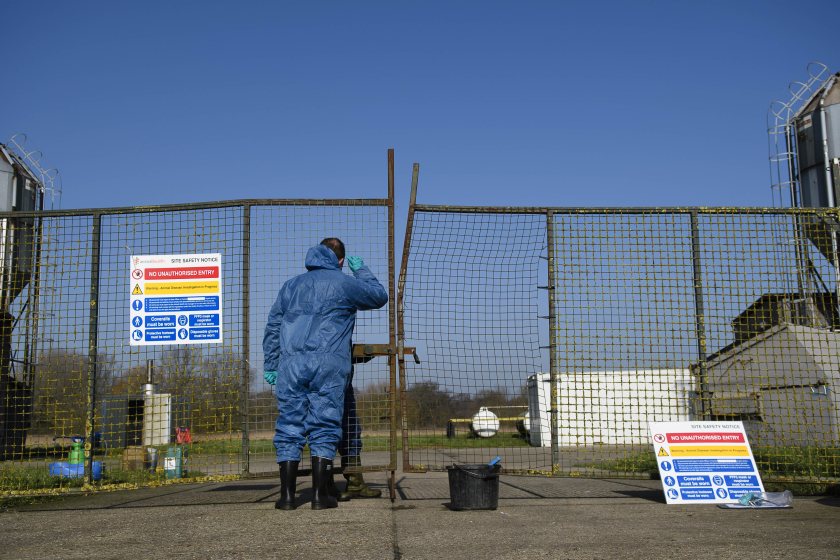
Authorities in Suffolk have confirmed a further outbreak of highly-pathogenic bird flu, making it the county's seventh case in the space of a month.
Suffolk Trading Standards explained that avian influenza of the H5N1 strain was found on Monday in a backyard flock of poultry, near Stowmarket.
All poultry on the infected premises will be humanely culled, Trading Standards added.
A 3km Protection Zone and 10km Surveillance Zone has also been put in place around the site.
The new outbreak follows a recent spike of cases in Suffolk, including one which led to a cull of over 82,000 ducks .
The UK's chief veterinary officer Christine Middlemiss said poultry farmers and backyard keepers in the county need to step up their efforts in boosting biosecurity.
"We are still seeing a number of bird flu cases both on commercial farms and in backyard birds right across Suffolk.
"Many poultry keepers in Suffolk have excellent biosecurity standards but the number of cases we are seeing suggests that not enough is being done by all bird keepers to keep bird flu out.
"Whether you keep just a few birds or thousands, you must take action now to protect your birds from this highly infectious disease."
This winter has seen an unprecedented incursion of avian influenza into Europe, with an unusually high number of cases recorded in the UK.
Defra Secretary George Eustice said in December that the UK was seeing its worst ever outbreak of avian influenza.
In England alone, there has been 88 cases of highly-pathogenic avian influenza since late October 2021, the start of the winter bird flu season.
The crisis has led to the removal of free range eggs from the UK market, due to the continuing housing order in place since November 2021.
The mandatory housing measures, which were rolled out on 29 November 2021, were not lifted on 21 March.
From this date, the 16-week grace period that was in place for the marketing of free range eggs ended.
This means that eggs from hens temporarily housed in barns for their welfare can no longer be marketed as free range.
NFU chief poultry adviser Aimee Mahony said: "These housing measures apply to all poultry keepers, whether you have one hen in the garden or a large poultry business.
"Vigilance is key with this disease and it’s vital that keepers report any signs of disease in their birds at the earliest opportunity to help prevent any further outbreaks."
How can I boost biosecurity?
The government has issued advice to poultry farmers and keepers on improving biosecurity:
• House or net all poultry and captive birds to keep them separate from wild birds
• Cleanse and disinfect clothing, equipment and vehicles before and after contact with poultry and captive birds – if practical, use disposable protective clothing
• Where possible change their footwear before entering sheds housing poultry and captive birds. If not, then ensure they are thoroughly cleaned and disinfected
• Reduce the movement of people, vehicles or equipment to and from areas where poultry and captive birds are kept, to minimise contamination from manure, slurry and other products, and use effective vermin control
• Thoroughly cleanse and disinfect housing on a continuous basis
• Keep fresh disinfectant at the right concentration at all farm and poultry housing entry and exit points
• Minimise direct and indirect contact between poultry and captive birds and wild birds, including making sure all feed and water is not accessible to wild birds
• Store bedding so that it cannot be contaminated by wild birds
• Ensure appropriate rodent control is in place in all areas where birds are kept, in addition to any areas where the birds bedding or feed is kept
